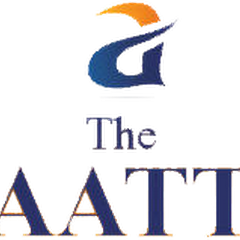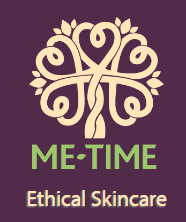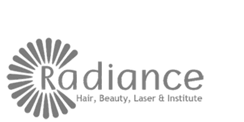The new revised Level 5 Diploma in Practitioner Reflexology offers a modern comprehensive Level 5 training in Reflexology combined with a detailed Level 4 in Anatomy, Physiology, Pathophysiology and Business Planning.

The new revised Level 5 Diploma in Practitioner Reflexology offers a modern comprehensive Level 5 training in Reflexology combined with a detailed Level 4 in Anatomy, Physiology, Pathophysiology and Business Planning.
Course Introduction:
This course is designed for anyone wishing to study reflexology to an unparalleled level of professional clinical excellence. The depth and breadth of this course ensures varied, interesting, challenging and fun learning that is totally relevant to today's Professional Reflexologist.
According to Agored Cymru (the Awarding body) 'the level 5 Diploma in Practitioner Reflexology offers a pathway to a career as a Professional Reflexologist. It extends the requirements of practitioner status currently at level 3 and develops the learning into an evaluative, justified and applied client treatment specific practice.
The level 5 course is also designed to attract medical and health professionals, helping integrate complementary therapies with conventional medicine / allopathic practices.
Currently centres throughout England that offer the L5 route have learners who either enter other complementary therapy studies offered within the higher education system or secure new business development (including corporate opportunities), either as self employed reflexologists or employed within organisations such as the NHS, private hospitals, GP surgeries, hospices and more.'
Contemporary Reflexology College (CRC) is dedicated to raising the standards of Reflexology training for both new and existing reflexologists. CRC is unique in its approach to Level 5 practitioner training by incorporating Foot Reflexology, Hand Reflexology and Ear Reflexology into the syllabus, as well as specialisms and training in a variety of related topics.
Meridian Reflexology
Adapting Reflexology for the chronically sick, those needing palliative care and those requiring support in living with Cancer
Understanding the needs of couples with sub-fertility issues and how to support the client throughout pregnancy, labour and post-partum
The importance and relevance of research in working towards an integrated healthcare system
Understanding the role of nutrition in health and well-being
Self-care and emotional well-being
Inner Intent Reflexology - the mind body connection with intent created by Allison Walker
A journey through the life cycle of a client from baby reflexology to supporting clients through their golden years. Key phases of life such as puberty and menopause are covered with specific techniques and protocols to enhance wellbeing
Suitable for men and women looking to change career or to work as part-time professionals there is a structured programme of home assignments and case study work in addition to the 24 course days that are spread over approximately one year.
Although this is an academic course, plain English is used alongside the medical terminology to aid learning and at least 50 per cent of the contact teaching time is devoted to the cutting edge practical reflexology techniques. There is also a holistic element to the course through exploration of other complementary therapies and the pathology of disease.
Support throughout the course is through an interactive Student Area called The Hub on the web site, tutorials (in class, telephone or Zoom) with your tutor, continuous feedback in class, through your marked work and from your colleagues (as most groups form a deep and lasting friendship throughout the year). Videos of the techniques are provided as well as charts and maps of the feet, hands and ears and body systems.
Insurance and Membership Association
The college and tutor's teaching insurance covers you for all eventualities but you are also required to join The Association of Reflexologists, the largest UK reflexology membership body, who will support you throughout your training with quarterly magazines, monthly newletters, student meetings and many other benefits including personal student insurance through Alan Boswell that also covers your equipment.
Assessment Criteria
Assessment is on-going as your assignments and case studies build into detailed Portfolios of Evidence. There are in-class practical assessments but no theory exam to stress over!
Because this is a Level 5 course, the work that you produce will need to be presented in an academic format complete with Harvard Referencing, critical analysis and evaluation and reflection. If you have had any further or higher education this will really help, however there are full instructions, explanations and examples to help those less experienced in higher education and the writing of reports and essays.
There is a comprehensive home study programme and ideally you need to be able to dedicate a minimum of 12 hours per week to your case study work and home assignments. You can still work alongside training if you are organised and motivated.
Entry requirements
Learners must be at least 18 years of age to undertake this qualification.
There are no formal academic qualifications required for learners to embark on this qualification, but prospective learners must be aware of the level of learning and assessment expectations before commencing the course.
Consideration for suitability is dependent upon academic ability, life skills, work skills and experiences. All applicants are expected to attend a Zoom or in person interview following an on-line application to ensure that full information related to course content, course requirements and level and coverage of subject matter content are provided and understood before a formal offer of admission is given.
Essential attributes include a caring nature, a love for helping people with a hands-on approach and a desire to learn, plus the motivation you need to progress and develop. However as there is a lot of writing/typing, good spelling and grammar is needed and human biology or prior anatomy and physiology knowledge is very helpful.
You will also need good basic computer skills because work is normally typed and submitted by email. We do recognise that everyone learns in a different way at a different pace so there is provision if you fall behind when life "takes over" as it can do from time to time.
When you sign up for the course we expect full commitment for the whole course, in both attendance and achievement, so think carefully and research your options.
If you have any doubts about your capability or suitability for this course or are not sure if the course is right for you, then please telephone for a chat before you apply. We encourage a thorough investigation of this course and our Tutors before you make your decision.
In turn we need to be sure that you have the determination to complete the course. Following a successful meeting you will formally be offered a place, in writing, on the next available course. You will then be asked to complete a registration form and asked to pay your booking fee. A college Welcome Pack is then emailed to you and your journey begins!
Opportunities when qualified
To help you to feel fully confident in setting yourself up in practice, towards the end of the course we cover marketing and help you to prepare your business plan. The Business Planning for Reflexologists unit is to Level 4.
When you have successfully completed the course and received your certificates there is further support from the college through post-graduate Continuing Professional Development Courses (CPD) and you can join the Government approved regulatory body called the Complementary and Natural Healthcare Council (CNHC) that promotes reflexology to the public.
You can also choose your Association that supports you throughout your career and provides you with a professional code of ethics and conduct. The Association of Reflexologists (AoR) is the largest UK Reflexology membership body for reflexologists trained to all levels. The AoR has an unparalleled level of support and resources to tap into and favourable insurance rates through Alan Boswell.
Most graduates start by incorporating Reflexology into their existing working lives and gradually build up a workable practice before going fully self-employed. Employment opportunities are becoming more prevalent and this can be within the NHS, especially in the Oncology and Fertility units.
Companies looking to reduce absenteeism and improve employee wellbeing are finding Reflexology to be highly effective in preventing workers from becoming ill, and in helping those off sick to return to work quicker. Increased productivity and profits are the result as companies see real value in investing in the care of their workforce.
Level 5 graduates when they present their Certificates and comprehensive Portfolios of evidence shine way above the Level 3 less academic and often shorter courses.
Nursing homes and care homes are also looking to offer Reflexology to their residents and CRC graduates are also working in Hospices and in Fertility Clinics. Midwives can use their reflexology skills on labour wards with great success.
What is included:
24 Days of in-class contact teaching and interim support (please note some courses are shorter for the same or more cost)
Practical Hand, Foot and Ear Reflexology
Anatomy and Physiology (Structure and Function of each of the body systems)
Business planning and Marketing
Pathophysiology of disease covering the reasons why people become ill, how the body heals itself, medical and holistic care
5 Element Meridian Reflexology
Supporting fertility and pregnancy through reflexology
Reflexology and the menopause
Reflexology to support clients with serious illness or in need of palliative care
Research and Reflexology
Comprehensive and detailed course hand-outs
Charts of the Feet, Hands, Ears, Meridians and body systems on the feet
Auricular Reflexology - amazing for pain, mobility and allergies
Body biomechanics and exercises to ensure safe practise
Chakra Balancing through the feet and ears
Understanding energy, the power of intention and intuition
Videos demonstrating the techniques
Slideshows of each system of the body
Treatment Planning Protocols
An interactive Learning Area on the web site called The HUB
College Polo Shirt with logo
Interim Zoom group meetings
AIR - Adaptive Integrated Reflexology - a unique sequence that can be adapted to suit any client
About Reflexology
There have been references to working on the feet, hands and ears in many civilisations throughout history.
There have been references to working on the feet, hands and ears in many civilisations throughout history. An early Egyptian tomb drawing depicts what looks like a modern day Reflexology session and the fact that it was found in the Physician's tomb seems really relevant.
The hieroglyphics read "Please do not hurt me" and the reply is "I shall act so you praise me".
Most people find Reflexology an incredibly relaxing therapy and therefore helpful as part of a coping strategy for everyday stress.
A good highly qualified and experienced Reflexologist can work out a tailor made treatment plan to encourage the body's own healing response. Reflexologists treat the person and not the disease.
'It's far more important to know what person the disease has than what disease the person has.' Hippocrates 460 BCE - 375 BCE
Reflexologists believe that every part of your body is reflected in your feet and hands and that there are micro (miniature) versions of the macro (larger) version to be found all over the body, even on the ears!
Zone Theory and then Zone Therapy that Reflexology was originally based on, hypothesises that the body can be divided into 10 longitudinal zones, five on each side. Zone 1 would be the section from the big toe straight up the body into the head.
Any area of the body that is compressed within this zone will (according to Dr. William Fitzgerald and Dr. Joe Shelby Riley among others) affect every other area within the zone. An early article published in the 1900's by Dr. Fitzgerald who was an ear, nose and throat surgeon, stated "To stop that toothache, squeeze your toe".
Reflexology as we know it today began within the medical profession. It was sidelined into the Complementary sector because, although it was acknowledged that it worked following substantial anecdotal evidence, there was more money and less time involved in writing a prescription.
There is more scientific research then underway these days to help validate the efficacy of a Professional Reflexology Treatment, including MRI scanning of the brain during a reflexology treatment.
Eunice Ingham was a physiotherapist working in the surgery of doctor Dr Joe Shelby Riley and his wife.
Dr Riley was interested in Zone Therapy and introduced it to Eunice Ingham. It is she who is credited with mapping the foot and hand charts we see today and devising the classic thumb and finger walking technique through years of painstaking research in hospitals and with her patients.
Eunice Ingham termed her method of compression "Reflexology" ('ology' meaning the science of) and the name has stuck ever since.
In the United States of America, reflexology grew through the work of Eunice Ingham and her followers, including Dwight Byers, her nephew.
In England it was Doreen Bailey who brought Eunice Ingham's Reflexology to the Complementary Health sector. Initially it was vilified, as it often is today, by people who have not experienced a professional treatment and cannot appreciate the often subtle way in which it works.
Classic clinical research trials are not ideally suited to objectively assessing the efficacy of reflexology and as most complementary health practitioners work individually with the desire to help people, it is difficult to fund large robust clinical trials.
Reflexology is continually developing and progressing into a very effective therapy for holistic care.
Exciting new techniques mean that each treatment can be adapted to clients' specific needs and faster results can be achieved in promoting the body's own healing response.
Research is enabling us to learn more and more about how reflexology works, the power of the healing touch and the importance of hands-on therapies in reducing stress and tension. Even how amazing the power of the mind is over the body's responses - sometimes referred to as the Placebo effect.
Stress is understood by the medical profession to be instrumental in developing and exacerbating many health problems. So it is imperative that we find effective ways of managing stress - reflexology can be extremely effective in minimising the effects of stress on mind and body. For more information on current reflexology research have a look at this list of research papers.
The average pair of feet will walk about 40,000 miles in a life time, usually without the M.O.T that we insist our cars have!
Just think of a Reflexology session as an M.O.T for the whole body through the feet. A regular maintenance treatment may help to keep the body on an even keel through its relaxing and calming effects and therefore prevent many of the everyday health niggles that we seem to put up with today.

Deep Tissue Massage Course are offered by Beautify Training Academy for all skill levels.

On this course you will cover Anatomy & Physiology, Swedish Massage, Hot Stone Massage, Pregnancy Massage and Indian Head Massage

The course last two days, usually on a weekend, so you dont have to take time out of your busy week! Please see below our list of upcoming courses.

The Hand Reflexology course is suitable for anyone who has an interest in Reflexology and would like to learn more about the benefits of Reflexology. No previous experience in Reflexology or Massage is required.

If you want to learn a profession with great professional opportunities, don't hesitate for a second to enroll on this course where you will learn
© 2025 coursetakers.com All Rights Reserved. Terms and Conditions of use | Privacy Policy